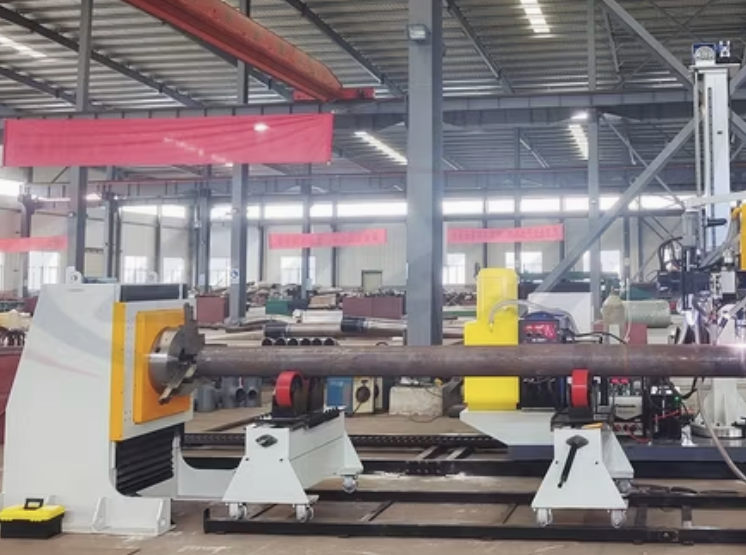
Posted on Friday, November 1, 2024
The shipbuilding and marine industries rely heavily on advanced metal fabrication machines to deliver cutting-edge vessels and structures that meet the demands of modern maritime operations. From constructing enormous cargo ships to crafting luxurious yachts, metal fabrication machines play a pivotal role in shaping the future of the marine industry.
Shipbuilding involves the precise manipulation of metal components to create durable, seaworthy structures. Below are the most commonly used machines that drive innovation in this sector:
The most-used machines in shipbuilding include CNC machines, plasma cutters, robotic welders, and hydraulic press brakes. These machines are essential for cutting, welding, shaping, and assembling the various metal components of a ship.
Robotic welders automate welding processes, ensuring consistent and high-quality welds. This is crucial for the structural integrity of ships, which must withstand extreme conditions at sea.
CNC machines provide unmatched precision and efficiency, enabling the creation of complex ship components with minimal waste and faster production times.
A plasma cutter is a machine that uses electrically conductive gas to cut through metals like steel and aluminum. It is used in shipbuilding for its ability to produce clean, precise cuts, which are essential for the structural elements of ships.
Metal fabrication machines address challenges like ensuring precision in large-scale components, reducing human error, speeding up production timelines, and improving the overall durability of ships.
Metal fabrication machines are the backbone of modern shipbuilding, driving innovation and efficiency across the industry. By automating key processes like cutting, welding, shaping, and assembly, these machines enable the production of state-of-the-art vessels that meet the highest safety and performance standards. Whether crafting massive cargo ships or elegant yachts, the marine industry continues to benefit from advancements in metal fabrication technology.

Used Purlin Roll Forming Machines for Sale Worldwide
Posted on Sunday, January 25, 2026
Pre-Owned Roll Forming Machines for Purlin & Structural Steel Profiles

Used Roof Panel Roll Forming Machines for Sale Worldwide
Posted on Sunday, January 25, 2026
Pre-Owned Roll Forming Machines for Roofing Panel Production

Used Roll Forming Machines for Sale Worldwide
Posted on Tuesday, January 20, 2026
Pre-Owned Roll Forming Machines with Inspection, Verification & Global Support

Steel Coil Supply for Roll Forming Machines Worldwide
Posted on Tuesday, January 20, 2026
Reliable Steel Coil Supply for Roll Forming, Fabrication & Manufacturing Applications
Copyright 2026 © Machine Matcher.